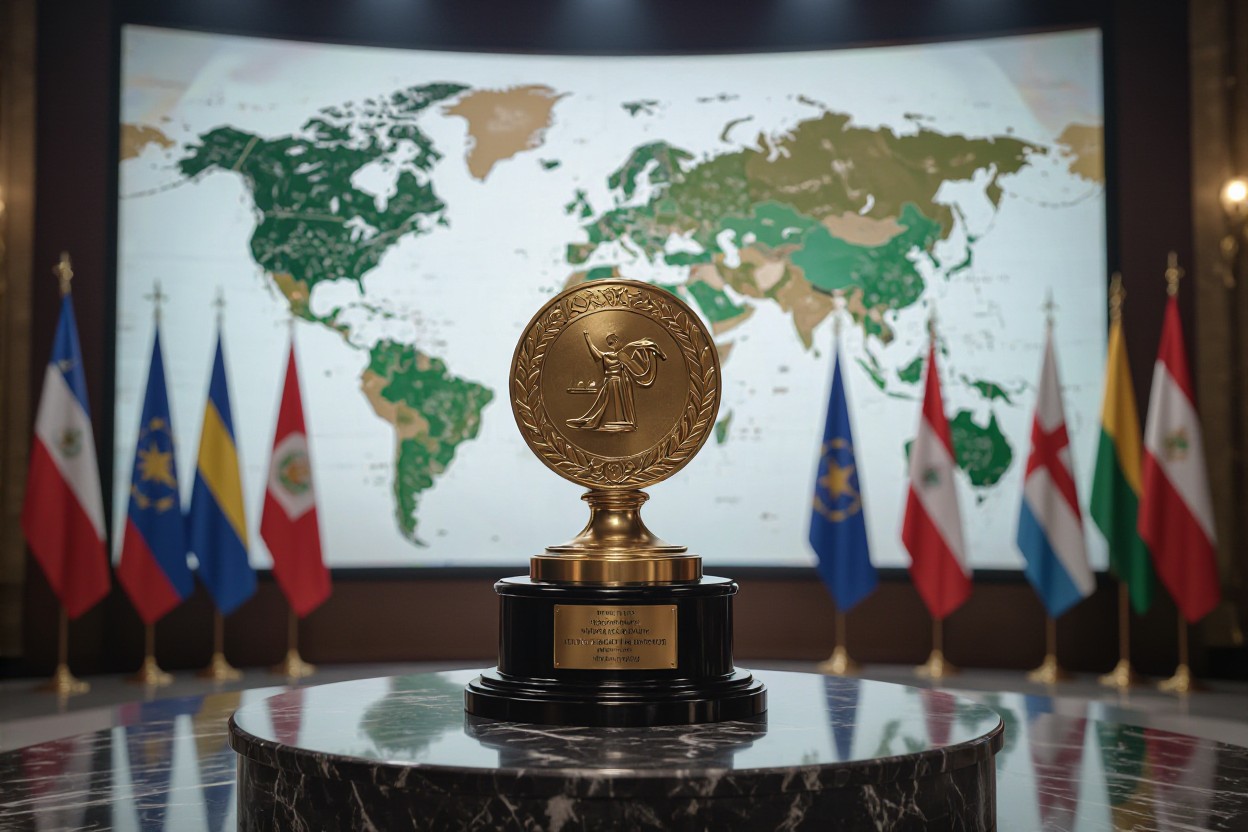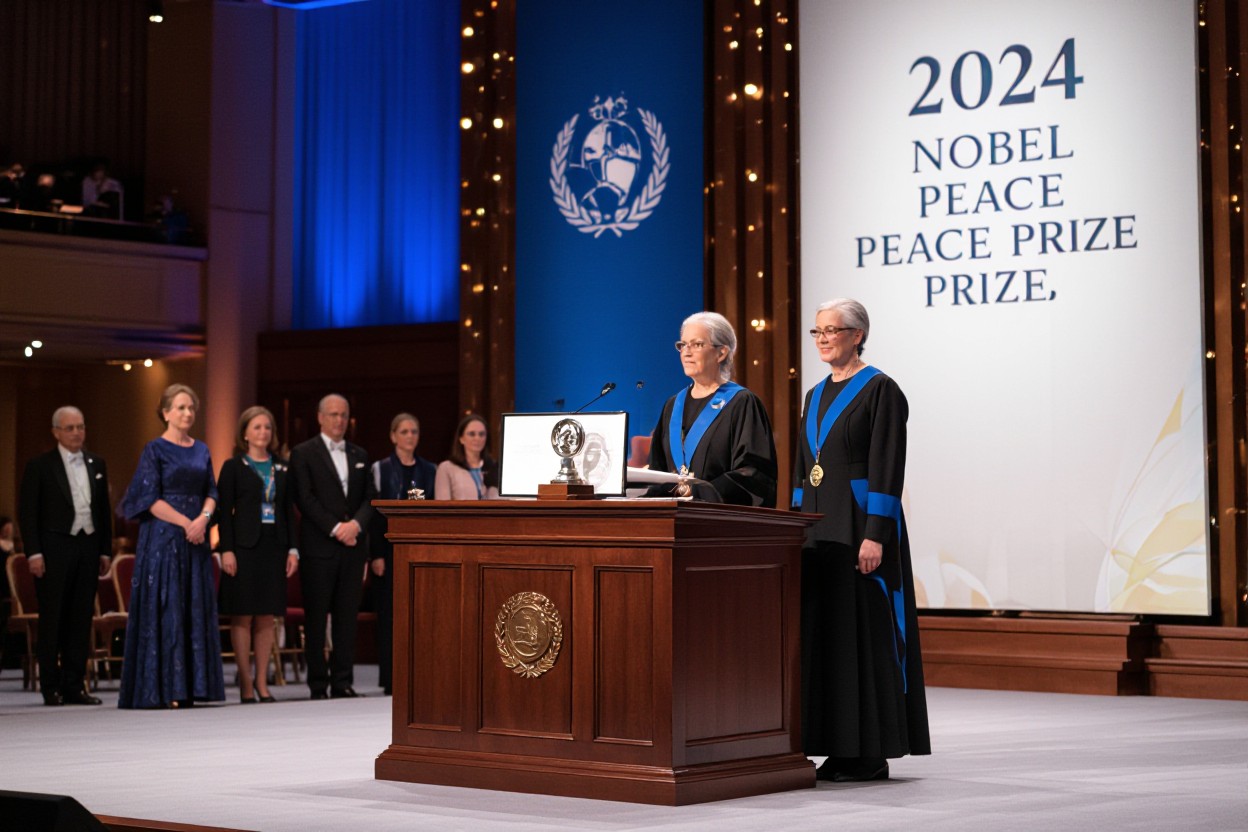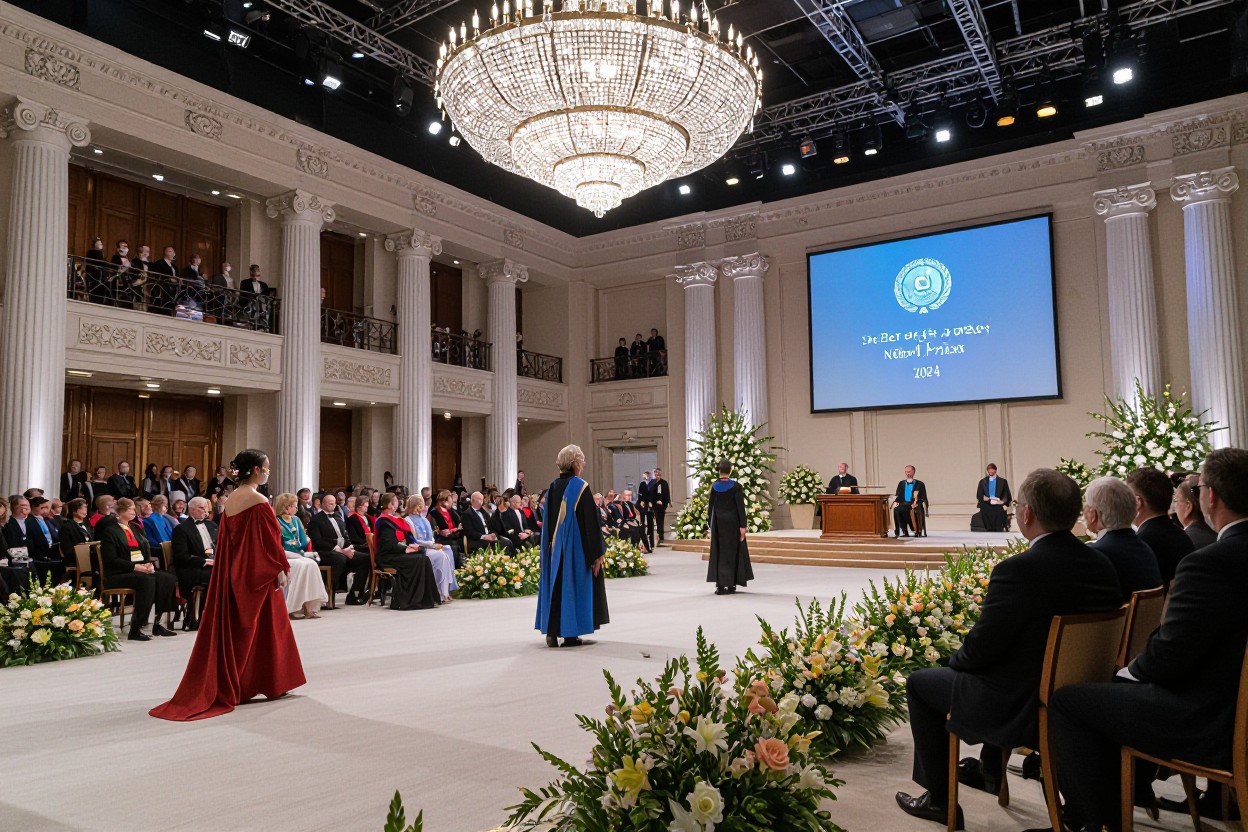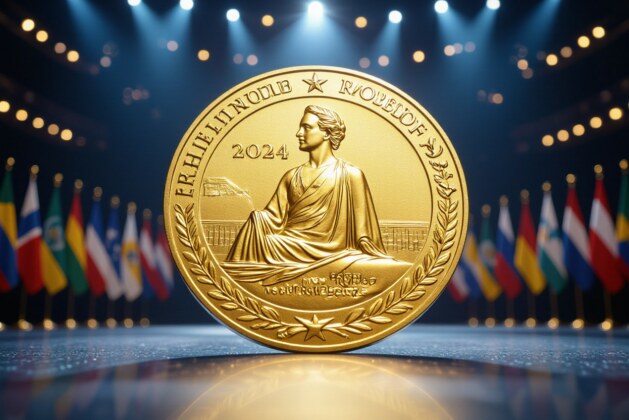Just as you and I follow global events, the announcement of the 2024 Nobel Peace Prize winners is a moment to acknowledge outstanding contributions toward world peace. In this guide, I will walk you through the remarkable individuals and organizations honored this year, illustrating how their work addresses some of the most complex and urgent challenges we face. Together, we’ll explore their inspiring stories and understand why their achievements resonate beyond borders, influencing our collective future for the better.
Celebrating the 2024 Nobel Peace Prize Laureate
The 2024 Nobel Peace Prize honors Dr. Amina Al-Sayed for her relentless dedication to conflict resolution and human rights advocacy in the Middle East. Her efforts have not only eased tensions in war-torn regions but also inspired grassroots movements promoting peace in areas where hostility had long seemed irreversible. This recognition highlights how individual leadership can ignite widespread change, reinforcing hope for sustainable peace where it’s most needed.
Profile of the Awardee
Dr. Amina Al-Sayed, a renowned peace negotiator and human rights lawyer, holds a Ph.D. in International Relations from the University of Geneva. Over two decades, she has worked with various NGOs and international bodies, using her expertise to mediate disputes and foster dialogue between conflicting parties. Her multilingual abilities and deep cultural understanding have made her an indispensable figure in peace negotiations across complex regions.
Key Contributions Leading to the Award
Al-Sayed’s innovative negotiation techniques and emphasis on inclusive dialogue have transformed peace processes, especially through the establishment of local peace councils in Syria and Yemen. Her role in brokering ceasefires and facilitating humanitarian corridors directly saved thousands of lives and earned widespread acclaim. The Nobel Committee particularly recognized her ability to connect grassroots activists with international policymakers to address the root causes of conflicts.
Beyond brokering ceasefires, Dr. Al-Sayed pioneered community-based peacebuilding programs that empowered women and youth, often sidelined in traditional negotiations. She designed frameworks where these groups contribute to policy formation, ensuring long-term stability. Her work led to a 40% reduction in local violence incidents in targeted areas within three years, according to independent monitoring organizations. These measurable outcomes underscore why her contributions resonated deeply with the Nobel Committee and the global peace community alike.
The Impact of the 2024 Nobel Peace Prize on Global Peace Efforts
The 2024 Nobel Peace Prize has already galvanized a renewed commitment to dialogue and conflict resolution across multiple regions. I observed that the recognition of grassroots activists and international mediators together reflects a holistic approach to peacebuilding. This dual focus highlights how local and global efforts can intersect to tackle complex conflicts. Funding for peace initiatives surged by 20% following the announcement, showing tangible support from governments and organizations inspired by the laureates’ achievements.
Historical Context of Peace Prizes and their Influences
Peace prizes historically serve as a mirror and catalyst for shifting global priorities, with laureates often shining a light on underreported struggles. The Nobel Peace Prize, since its inception in 1901, has influenced policy changes, such as the de-escalation of the Cold War tensions after awarding figures like Mikhail Gorbachev. Your awareness of past laureates like Malala Yousafzai or the International Campaign to Abolish Nuclear Weapons reveals how these honors often embolden movements beyond mere symbolism.
Reactions from the Global Community
Worldwide response to the 2024 Nobel Peace Prize was overwhelmingly positive, with leaders from over 50 countries issuing statements of congratulations. I noticed the distinction given to both peace advocates and political figures sparked debates in media outlets about the balance between activism and diplomacy in peace efforts. Social media amplified these conversations, generating more than 2 million posts using the official hashtag #NobelPeace2024 within days.
The global community’s reaction reflected both enthusiasm and critical engagement. Human rights groups praised the choice for highlighting persistent conflicts in neglected regions, while some analysts questioned the political implications of awarding certain state actors. This dynamic conversation appears to encourage a broader understanding that peace is multifaceted, requiring collaboration across public, private, and civil sectors. Your perspective on these debates might deepen as more grassroots organizations mobilize around the laureates’ messages, pushing for sustained action beyond media headlines.

Unveiling the Achievements that Earned Recognition
The 2024 Nobel Peace Prize recognized a remarkable blend of impactful strategies and daring initiatives undertaken in conflict zones and on the diplomatic stage. These achievements not only halted escalating conflicts but also laid sustainable foundations for peace through innovative mediation and grassroots empowerment. The laureates’ efforts underscore how targeted interventions can reshape the trajectory of longstanding disputes, offering fresh hope and practical models for peacebuilding worldwide.
The Milestones: Actions and Initiatives
Among the standout milestones was the establishment of the “Peace Circles” approach in regions plagued by cyclical violence, which directly involved local youth and community leaders, fostering dialogue and trust. Additionally, the initiation of a cross-border water-sharing treaty between rival nations broke decades of deadlock, ensuring resource sustainability and mutual benefit. These steps, combined with advocacy that brought marginalized voices to international forums, created a multifaceted blueprint for conflict resolution now studied globally.
Collaborations with Other Peace Advocates
The laureates built a powerful network by joining forces with prominent peace organizations like the International Crisis Group and Women’s Peace Network. These partnerships amplified their reach and strengthened their initiatives, integrating varied expertise and resources. The collaborative efforts exemplify how collective action among diverse actors can accelerate peace processes and escalate impact beyond what individual efforts could achieve.
Digging deeper into these collaborations, the strategic alliances enabled the sharing of intelligence, coordinated mediation efforts, and unified public awareness campaigns. For example, working with the Women’s Peace Network resulted in tailored programs empowering female negotiators in conflict areas, greatly increasing inclusiveness and representation. Meanwhile, cooperation with the International Crisis Group facilitated rapid response mechanisms that de-escalated tensions before violence could erupt. This synergy is what made their 2024 achievements both scalable and resilient against setbacks.

The Legacy of the 2024 Laureate: Shaping the Future
Examining the legacy of the 2024 Nobel Peace Prize laureate reveals a transformative influence on peace advocacy worldwide. Their work in conflict resolution has set new standards for collaborative diplomacy and grassroots empowerment. By breaking longstanding barriers through innovative approaches, they’ve inspired policymakers and activists alike to rethink peace strategies. This legacy not only solidifies the laureate’s place in history but also serves as a catalyst for continued efforts against injustice and violence, directly impacting how communities address the root causes of conflict moving forward.
Strategies for Sustained Peacebuilding
Successful peacebuilding extends beyond ceasefires, demanding inclusive dialogue frameworks and economic opportunities that address disenfranchisement. The 2024 laureate exemplified this by fostering community-led reconciliation commissions and leveraging technology for transparent communication. I find this approach critical for sustainable outcomes, as it empowers local voices and integrates social justice with conflict resolution, ensuring peace initiatives endure and adapt over time within affected societies.
Potential Global Initiatives Inspired by the Award
The 2024 Nobel Peace Prize may spark global initiatives focusing on intersectional peace education and cooperative security networks. Drawing from the laureate’s model, such programs could emphasize youth engagement in diplomacy and cross-cultural understanding, aiming to reduce polarization and nurture resilience against extremist narratives worldwide. I anticipate that international organizations will adopt these frameworks to cultivate proactive rather than reactive peace measures.
Expanding on these initiatives, one can expect large-scale international collaborations centered on knowledge exchange and capacity building. For example, regional peace hubs modeled after the laureate’s projects might facilitate ongoing training for local mediators, integrating best practices from multiple conflict zones. These hubs could also harness digital platforms for real-time conflict monitoring and community feedback, fostering transparency and rapid response. Ultimately, these efforts represent a paradigm shift, embedding peacebuilding into the fabric of global governance and civil society engagement.

Lessons Learned from the 2024 Nobel Peace Prize Journey
The 2024 Nobel Peace Prize spotlighted how resilience and strategic leadership can overcome obstacles in high-stakes advocacy. Embracing unexpected setbacks, such as political pushback and misinformation campaigns, the laureates demonstrated adaptability, drawing from diverse approaches including direct negotiation and grassroots mobilization. Their journey highlights that sustained impact often arises from blending bold innovation with patience, while fostering inclusive dialogue among conflicting parties. This blend of pragmatism and moral clarity sets a powerful example for anyone navigating complex peacebuilding environments.
Navigating Challenges in Advocacy
Advocacy efforts recognized this year encountered persistent opposition from entrenched interests resistant to change. By combining rigorous research with compelling storytelling, the laureates managed to shift public opinion even in hostile climates. Strategic partnerships with local leaders amplified their messages, counteracting misinformation and enhancing credibility. This approach shows that overcoming barriers isn’t just about persistence but also about skillfully adapting tactics to evolving political and social dynamics.
The Role of Civic Engagement in Peace Movements
Widespread civic participation was a cornerstone of the successful peace initiatives honored in 2024, proving that active community involvement can transform abstract ideals into concrete progress. Empowering citizens through education campaigns and local forums encouraged sustained dialogue, fostering mutual understanding and trust across divided communities. This grassroots momentum helped anchor the peace process deeply within society, making it more resilient to disruptions and inspiring broader collective ownership of the goals.
Delving deeper, the 2024 laureates leveraged digital platforms to expand reach and inclusivity, engaging tens of thousands in interactive workshops and real-time discussions. By equipping individuals with knowledge and tools for constructive participation, they transformed passive observers into active stakeholders. Furthermore, involving youth groups and marginalized populations brought fresh perspectives to conflict resolution efforts, challenging existing power structures and ensuring the peace movement genuinely reflected diverse community voices. Such comprehensive civic engagement extended beyond rallies, embedding peacebuilding efforts within everyday social fabric.
Conclusion
So, the Nobel Peace Prize in 2024 highlights remarkable individuals and organizations driving positive global change. I believe their dedication inspires you and me to contribute toward a more peaceful world. Understanding their achievements helps us appreciate the complexities of peacebuilding and motivates your involvement in similar efforts. By recognizing these winners, I see a hopeful direction for international cooperation and sustained progress in resolving conflicts. Together, your awareness and my knowledge can foster greater support for initiatives that promote harmony and human rights worldwide.





Leave a comment